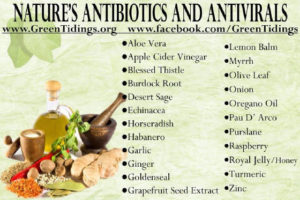
Garlic and honey
Science has studied garlic and found it to be a superstar for health and healing. It holds the following qualities:
Prevents atherosclerosis
Heart attacks
Coronary heart disease
Lowers cholesterol
Blood pressure levels
Heals bug bites
Alleviates cold symptoms and hay fever
Helps treatment of fungal infections
Traveler’s diarrheas
Eliminate toxins
Strengthen immunity
It may be beneficial in controlling symptoms of:
Diabetes
Enlarged prostate
Osteoarthritis
Garlic and Honey Recipe
Garlic is optimal in its raw form. Crush and chop cloves, let sit fifteen minutes, and add it to food. Take regularly to strengthen immunity and achieve optimal health.
2-3 raw garlic cloves chopped finely
1 tablespoon raw, organic honey
Combine and enjoy! Take this every day to bolster energy levels.
Cholesterol and Triglyceride Lowering Remedy
One clove of raw garlic, grated
A half freshly squeezed lemon juice
A half teaspoon of organic ginger, grated
One tablespoon organic apple cider vinegar
One tablespoon of organic, raw honey
Place all ingredients in a blender and blend on a low speed until smooth. Place the mixture into a jar and refrigerate. Drink small amounts through the day, before every meal. You can mix it with water before drinking it or mix with your favorite smoothie recipe.
Raw garlic lowers triglycerides, cholesterol, and blood sugar levels, according to animal studies. Garlic can prevent and reverse atherosclerosis.
Ginger significantly reduces triglycerides and cholesterol levels in patients suffering from diabetes, nephrotic syndrome, hypothyroidism, and alcoholism.
Apple cider vinegar improves blood sugar control, insulin levels, and high triglycerides and cholesterol levels in patients who have type 2 diabetes.
Honey has a soft effect on protecting blood vessels against cholesterol build-up.
Reducing your cholesterol and triglyceride levels will reduce your risk of heart disease. Cut back on highly processed foods, incorporate more good fats into your diet, and exercise daily.
Carrot makes a very healthy antioxidant rich drink, which can reduce high blood pressure and diabetes. It is better to drink fresh carrot juice than eating it raw because the nutrient content will be even more concentrated in the juice. Other benefits of carrot: Improves Immunity, Controls Heart Diseases, Reduces Cholesterol, Prevents Cancer, Prevents Acne, Source Of Vitamins Needed For Skin, Source of Calcium, Aids Digestion, Cleanses the Body.
Here is the syrup recipe:
½ kg of carrot (2 cups+)
3-4 tablespoons of honey
Cut the carrots into pieces and add to water and boil until tender. Strain the water, reserve and cool. Mash carrots with blender or a fork. Add honey to water, mix well and add to the mashed carrots. Syrup is ready! Keep the syrup in cold place. Take 3-4 spoons of the syrup during the day. After 1-2 days you will feel the results. This is one ancient way to remove the phlegm from the lungs and cure a cough.
Ginger Tumeric Carrot Juice
3 or 4 organic carrots
1 red organic apple
1/2 in piece of organic ginger root
1/2 in piece of organic turmeric root
1/4 organic lemon, peel and all!
You will need to make this recipe with a juicer. If you don’t have one, you can use a blender and add 1 cup of your favorite liquid base. I recommend coconut milk. Place all ingredients in a juicer or blender. Blend together. Enjoy!
Lower Cholesterol Naturally
Phytosterols are compounds found in plants that have a chemical structure similar to cholesterol, and when present in the diet in sufficient amounts, reduce blood levels of cholesterol, enhance the immune response, and decrease risks of certain cancers. Their effects are so dramatic that they have been added to processed foods such as imitation butter and touted as cholesterol- lowering.
Sesame seeds have the highest total phytosterol content of all nuts and seeds, followed by pistachio, sunflower and pumpkin. English walnuts and Brazil nuts have the lowest.
Pumpkin seed oil packs whopping amounts of vitamins – A, B1, B2, B6, C, D, E and K, as well as the minerals magnesium, calcium and iron. This oil is high in omega-3 and omega-6 fatty acids. These vitamins, minerals and healthy fats helps boost the metabolism which in turn helps with weight lost and maintenance. Pumpkin seed oil can lower cholesterol and ease symptoms of arthritis.
Oats and Barley are packed with fiber. Soluble fiber seems to reduce the amount of cholesterol the body absorbs from the intestines, lowering total cholesterol and LDL or “bad” cholesterol in the process.
Fish – The right seafood can lower cholesterol. You are replacing meat in your diet, and meat contains more LDL-boosting saturated fats. Fish like salmon, sardines and albacore tuna are high in omega-3 fatty acids, shown to lower triglycerides.
Nuts – Toss in salads, sprinkle on oatmeal, or snack them by the handful. Just about any variety of nuts can lower total cholesterol, LDL and triglyceride levels.
Olive Oil – Swapping saturated fats for unsaturated fats in oils can help reduce total cholesterol. Olive oil in particular may increase HDL, or “good” cholesterol.
Apples – A medium-sized apple contains about 4 grams of LDL-lowering soluble fiber – 17 percent recommended daily intake. An apple a day keeps the heart doctor away!
Strawberries are rich in pectin, a soluble fiber that can lower LDL.
Citrus Fruits – You find pectin in oranges, grapefruits and other citrus fruits. Adding more fiber to your diet can lower blood pressure and reduce inflammation.
Beans And Lentils – Beans and lentils are great sources of soluble fiber, which keeps you full and can reduce cholesterol. People who ate a half-cup of beans a day over a 24-week period lowered their cholesterol by 8 percent.
Soy is a great source of protein and cholesterol free. A 2010 study found that eating soy can result in a moderate 8 to 10 percent decrease in total cholesterol.
Red Wine may be particularly beneficial, since it’s rich in antioxidants, which may lower LDL levels.
Avocados are rich in cholesterol-lowering unsaturated fats. Monounsaturated fats may lower LDL and raise HDL. Replace unhealthier dietary fats with these heart-healthy ones.
Green tea – While it appears to lower “bad” cholesterol, it’s only a slight reduction. — and you’d probably have to drink quite a few mugs full to see a difference. Chugging green tea isn’t a good idea for everyone; it can interfere with some medications.
